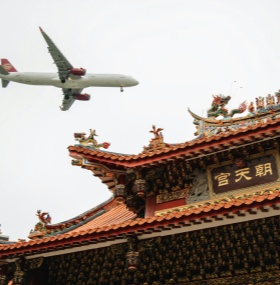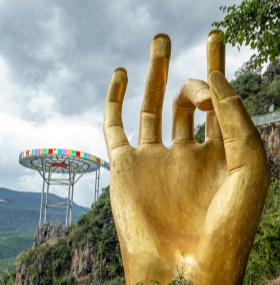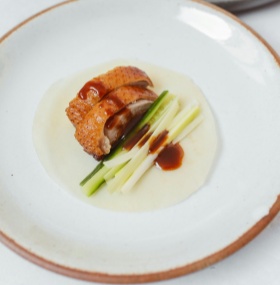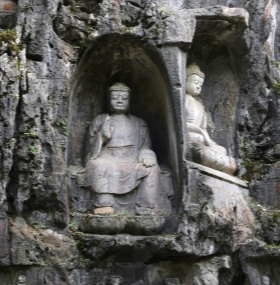China is a fascinating country with a long history, diverse culture, and unique traditions. For travelers, understanding the local customs and etiquette is essential for avoiding cultural misunderstandings and ensuring a smooth, respectful experience. To help you navigate the cultural landscape, here’s a guide to some of the most common cultural misunderstandings in China and how to avoid them.
1. Understanding the Importance of Hierarchy
In Chinese culture, hierarchy and respect for elders or authority figures are highly valued. When meeting someone, particularly in business settings, it’s important to show respect to senior figures by greeting them first or offering them the best seat at the table.
Tip: In formal or professional settings, always greet the most senior person first and allow them to make decisions regarding the seating arrangement. Be mindful of titles and use them when addressing people, especially in business or formal contexts.
2. The Concept of "Face"
“Face” is a core concept in Chinese culture that relates to a person’s reputation, dignity, and social standing. Publicly criticizing someone, embarrassing them, or causing them to lose face is considered deeply disrespectful. In contrast, helping someone to “save face” is an important way of showing courtesy.
Tip: When giving feedback or disagreeing with someone, always do so in private or in a way that preserves their dignity. Avoid openly criticizing anyone, particularly in front of a group, as this could lead to a loss of face.
3. Gift-Giving Etiquette
Gift-giving is an important custom in China, and it can be an expression of goodwill or respect. However, there are certain types of gifts to avoid. For instance, giving clocks, sharp objects (such as knives or scissors), or umbrellas can be seen as a bad omen or related to funerals.
Tip: When giving gifts, choose something thoughtful and meaningful, such as local specialties, fruit, or high-quality tea. Present your gift with both hands, which shows respect.
4. Dining Etiquette: Do’s and Don’ts
Dining culture in China is filled with customs and traditions that might differ from Western norms. For example, it’s common to wait for the eldest or most senior person at the table to start eating before you begin. Sharing dishes is typical, and there are some practices that may seem unusual to Westerners, such as the use of communal chopsticks.
Tip: When dining, avoid sticking your chopsticks upright into a bowl of rice, as this resembles a funeral ritual. Always pass food with the communal chopsticks provided rather than using your own. If you’re unsure of something, observe what others are doing and follow their lead.
5. Bargaining in Markets
Bargaining is a common practice in Chinese markets, especially in tourist areas or local street markets. While it’s expected to negotiate, it's important to do so politely and with a sense of fun, not aggression. If you're too aggressive or rude, vendors might be less willing to make a deal.
Tip: Start your bargaining at a lower price than what you’re willing to pay, but don’t go too low as to insult the seller. Bargain with a friendly attitude, and be prepared to walk away if the price doesn’t suit you.
6. Public Displays of Affection
Public displays of affection (PDA) are generally frowned upon in China, especially in rural or more conservative areas. While younger generations in larger cities may be more tolerant of such gestures, it’s still important to be cautious about showing affection in public.
Tip: Avoid overt gestures like kissing or hugging in public spaces, especially in more traditional areas. Hand-holding is more acceptable, but it’s still best to keep it understated.
7. Respecting Personal Space
In China, the concept of personal space may differ from what you are used to. Crowds are a common feature of urban life, and personal space is often limited in public places, particularly in major cities like Beijing, Shanghai, and Guangzhou. People are accustomed to being close to one another, especially in public transport.
Tip: Be patient and tolerant when traveling on crowded trains or buses. While Chinese people may stand close to you, it’s important to remain calm and avoid showing discomfort.
8. Punctuality is Crucial
Punctuality is highly valued in Chinese culture, particularly in business settings. Arriving late to meetings or events is seen as disrespectful and unprofessional. However, the concept of "time" can be more flexible in social settings, where a slight delay is often overlooked.
Tip: For business meetings, always arrive on time or a few minutes early. If you're attending a social gathering or dinner, being 10 to 15 minutes late is usually acceptable, but don’t push it too far.
9. Tipping and Service Charges
Unlike in many Western countries, tipping is not a common practice in China. In fact, it may even be considered unnecessary or rude in some places. High-end hotels or international restaurants might include a service charge, so additional tips are not expected.
Tip: Always check your bill to see if a service charge has been included. If not, tipping is generally unnecessary, although you can tip in certain high-end establishments or for exceptional service, especially in tourist areas.
10. The Right Way to Communicate
While English is widely spoken in major cities and tourist areas, many Chinese people may not be fluent in English, especially in rural areas. Miscommunications can easily occur if you rely solely on English.
Tip: If you're in a non-English-speaking area, learn a few basic Chinese phrases or use translation apps to bridge the language gap. Always speak slowly and clearly, and avoid using overly complex vocabulary.
By understanding and respecting Chinese cultural norms, you’ll not only avoid common misunderstandings but also enhance your experience as you travel through this diverse and dynamic country. China’s rich traditions and values are a significant part of its charm, and embracing them with humility and respect will help you connect with locals and enjoy your trip to the fullest.
Keep these cultural tips in mind, and your travels in China will be both enjoyable and rewarding. Understanding these nuances will also help you create lasting memories and meaningful connections during your stay.
Related Posts
Create Your Customized Trip
Take about 2 minutes to fill the form to tell us how you like to travel, and get a reply within 1 working day.








